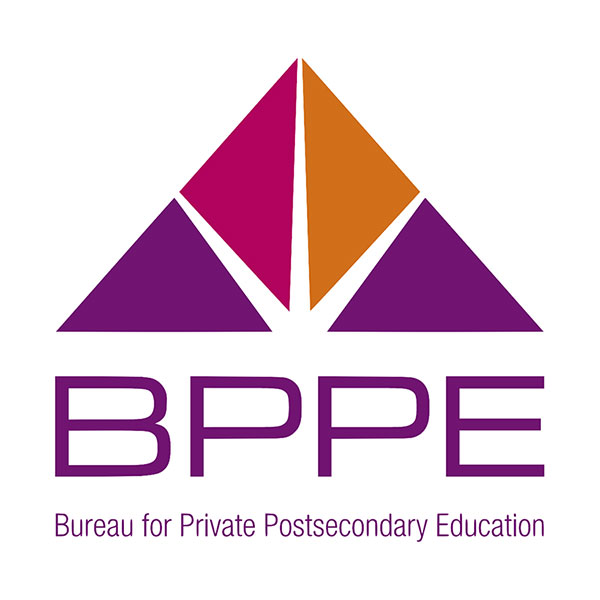
Academic Policies
Here you'll find everything you need to know about FIDM's academic policies, including registration, adding and dropping classes, transfer of coursework, and internships. Take a few minutes to familiarize yourself with this information, and you'll be ready to succeed in the classroom.
All new students are strongly encouraged to attend orientation, during which they meet their Department Chairperson and are given information about the college facilities, student services, and college policies, including grading, coursework, and job placement. In addition, students become familiar with Student Activities and the importance of becoming involved.
Financial clearance is the initial step in the process leading to registration for classes each quarter. All students must complete financial clearance through a Fiscal Counselor in the Student Financial Services Office. Typically, this process may include:
- Making all scheduled tuition and fee payments per their schedule of payments, including any adjustments
- Fulfilling other non-tuition financial obligations such as library fines and other book charges
- Requesting financial aid (if applicable), completing and turning in all information or other documentation requested by the student's Financial Aid Officer
- Resolving issues with other departments that are non-tuition related obligations such as I-20 status, or leave of absence paperwork
New students register for classes before the beginning of their first quarter or on Orientation Day with assistance from Admissions and the Education Department. Students then submit their schedules to the Registrar for final approval.
Continuing Student Registration
Registration for each upcoming quarter will take place during the latter part of the previous quarter.
Success Seminar is a required program for all first-time college students; however, students with previous college experience are also encouraged to attend. Making a smooth transition into college life is an important step towards achieving success. The seminar teaches techniques to help improve study skills, time management, stress management, and online research skills; it provides a chance to get to know FIDM Students, Faculty, Staff, and other first-quarter participants.
In order to hold an enrolled place in class, students must be present at the start of the first class session.
Students are encouraged to schedule appointments with an Education staff member to discuss their programs of study and educational goals.
Prerequisites are preliminary courses covering information that is required prior to enrolling in another course.
International students must attend a full course of study, or at least 12 units per quarter for undergraduates. Exceptions are made when a student needs less than 12 credits to complete a course of study.
Any student who fails a required class must repeat that course in order to graduate. Students will be charged full tuition and fees when they re-register for the class. In most cases, course books and supplies may be used when repeating the class. If any of the course books or supplies in a subsequent quarter have been changed, the student will be responsible for purchasing the new items. When a course is repeated, only the higher grade will be included in the cumulative grade point average.
All repeats must be completed at FIDM. General Studies courses may be an exception with the approval of the Department Chairperson. Credits for GNST courses that have been approved to be taken elsewhere are transferable for failed courses; however, the "F" earned at FIDM remains as part of the cumulative GPA. Federal financial aid may be received for only one repeat of a class for which a student has received a passing grade (“D-”or better).
Additional charges are applied when the student exceeds the number of units for an enrollment agreement. Students who retake a course for any reason or change their major and complete courses that do not apply to the new major will be responsible for the full course cost for those units, the course-related resource fees, and potentially added costs for books and supplies.
For classes that meet for the entire quarter, students have the first two weeks to add or drop a class. Charges for any dropped class(es) will be removed from the student’s tuition account and the class(es) will not appear on their transcript. After the drop period, Education Department approval is required to withdraw from a course which would result in a grade “W” on the transcript. Students will be charged full tuition and fees when they re-register. If the student has not been withdrawn from a course by the last day of week six, their final grade will be based on the points earned on all assignments accepted by the instructor throughout the quarter, and in many cases, that final grade may be an “F.” Students will have to re-register and pay tuition and fees for any courses they fail to complete. Students must acquire all required course materials before classes start. Books and supplies may be purchased at The FIDM Store or at thefidmstore.com.
To qualify for Independent Study, a student must have a strong background in the subject matter or a valid reason determined by the college, and a 3.0 grade point average at FIDM. Qualified students are allowed one Independent Study during their program; however, for special circumstances as determined by a Chairperson, additional Independent Studies can be granted. Independent Study is typically available during the second year and must be approved by the Department Chairperson or the Education Department, and the instructor.
Credit for Academically Relevant Experience (CARE)
In some cases, students may challenge courses by participating in the Credit for Academically Relevant Experience (CARE) program. Information and application forms are available to students from the Education Department. Documentation of equivalent skills, employment, military training or subject matter expertise acquired through independent learning is required. Approval from the Dean of Academic Development is required before credit (15 units maximum) can be awarded. Students may appeal adverse decisions with the Vice President of Education. There is a $350.00 fee for each 3-unit course accepted through the CARE program.
Internships are opportunities for students to combine academic training with employment in fields related to their course of study. In addition, students apply classroom principles to “real life” situations and explore various career options while in their program. In order to qualify, students should meet with a Career Coach, must maintain a minimum 3.0 grade point average, have proof of medical insurance, and be in the second, third, or fourth year of a FIDM undergraduate degree. Students enrolled in Professional Designation, Bachelor’s, and Master’s degree programs are eligible to apply for internships after their first quarter.
Internships must be secured and paperwork completed prior to the end of the quarter preceding the internship’s start date (e.g., by the end of Winter quarter for an internship starting in Spring.) To receive academic credit, students must confirm their plans with their department prior to applying and will be asked to complete specific coursework. International students may be eligible to complete internships, subject to federal/state regulations, if they qualify for FIDM’s Curriculum Practical Training (CPT).Coursework taken at another accredited college will be considered if there is an equivalent course at FIDM that is required for a specific major and the grade on a course already completed elsewhere is a grade of Pass or a minimum grade of "C-" (70%). Students must request a transfer credit evaluation from the Education Department before or during the first quarter of attendance at FIDM. Applicants for Veterans benefits must be evaluated prior to attending the first class. All documentation of transferred work must be submitted and evaluated prior to the start of the student’s second quarter so the student can select the correct classes. Transcripts must be official (stamped and signed by the Registrar of the college previously attended). They become a part of the student’s academic file and are not returned or copied for distribution. If a course was transferred in to FIDM but the student enrolled in that class, once brought to the attention of the college, a grade of “W” will replace the grade earned and the transfer class stands. Students currently registered in a class for which the prerequisite course was waived, or equivalent units were transferred from another institution, must go to their Department Advisor because books and supplies may need to be purchased for the transferred course.
FIDM also accepts students holding prior degrees for upper division transfer into selected programs. Check with an Admissions Advisor to confirm eligibility.How credit for a course at FIDM transfers to another educational institution depends on how that college or university will accept the course and how clearly defined a student’s transfer goal is. Students who wish to explore their transfer options should consult with FIDM’s Articulation Officer. Students graduating from FIDM must complete the graduation requirements for their specific degree. FIDM requirements, however, do not necessarily meet all lower division or general education requirements for other colleges. FIDM currently maintains articulation agreements with selected colleges with the intent of enhancing a student’s transfer opportunities.
Articulation is the planned, documented pathway between two or more colleges or universities and their academic programs. Articulation agreements are also called transfer agreements, transfer guides, and transfer pathways by various audiences. FIDM currently has articulation agreements with the following institutions:
California College of the Arts (San Francisco and Oakland campuses)
https://www.cca.edu/admissions/transfer/
See Articulation Guidelines. Humanities and Science Curriculum articulated for B.A.; B.F.A.; and B.Arch degrees; Interior Design curriculum articulated for B.F.A. degree. Visual Studies electives and seminar, required by CCA, can be met with articulated courses from FIDM’s A.A. design majors.
LIM (Laboratory Institute of Merchandising)
limcollege.edu/admissions/transfer-admissions
Basis of Agreement: 1. LIM will accept all course credits earned at FIDM for which the transferring student receives a grade of C or better and will allow a FIDM Student with fewer than 59 semester credits (90 quarter credits) to make up the deficiencies at LIM; 2. FIDM Graduates with an Associate’s Degree may enter LIM with full junior status. Currently, transfer pathways have been created for graduates of FIDM’s A.A. programs in Merchandise Product Development, Merchandising & Marketing, and Visual Communications.
Notre Dame de Namur University (NDNU)
https://www.ndnu.edu/documents/registrar/FIDM-articulation-agreement.pdf
Articulation agreement describes how courses taken at FIDM will transfer to meet Notre Dame de Namur University requirements for General Education and lower division major preparation. Students do not need to complete all of the requirements before transferring to NDNU.
Otis College of Art & Design
https://www.otis.edu/registration-records/transfer-credits
Foundation/Freshman Liberal Arts and Sciences Courses, Foundation Studio Courses and Architecture/ Landscape/Interiors Courses articulated to facilitate upper division transfer into the B.F.A. program in Architecture/Landscape/Interior program at Otis.
Regent's University London
Sufficient course content from FIDM’s Merchandise Product Development, Merchandising & Marketing, Fashion Design, Graphic Design, and Visual Communications programs articulated as equivalent to the first two years (levels 3 and 4) of the B.A. (Hons) Fashion Marketing; B.A. (Hons) Fashion Design (Marketing); B.A. (Hons) Fashion Design; and B.A. (Hons) Communication Design programs at Regent’s University.
Santa Monica College (SMC)
FIDM maintains articulation with SMC to facilitate preparation for admissions to their Bachelor of Science degree in Interaction Design.
University of Phoenix
https://www.phoenix.edu/admissions/transfer_information.html
Block transfers for all FIDM majors; details of the application of transfer credit outlined on the University of Phoenix website.
For assistance in applying to graduate schools after completing a FIDM Bachelor of Science and/or Bachelor of Arts program, contact FIDM’s Articulation Officer to discuss the necessary requirements and application procedures.
Final grades are issued at the end of each quarter and are accessible through the FIDM Portal. A student's performance in a course is expressed in terms of the following letter grades, with their numerical equivalents for computation purposes. Quality of performance is reported as follows:
Final grades are issued at the end of each quarter and are accessible through the FIDM Portal. A student's performance in a course is expressed in terms of the following letter grades, with their numerical equivalents for computation purposes. Quality of performance is reported as follows:
| Letter Grade | GPA | Percentage |
|---|---|---|
| A | 4.0 | 93-100 |
| A- | 3.7 | 90-92.9 |
| B+ | 3.3 | 87-89.9 |
| B | 3.0 | 83-86.9 |
| B- | 2.7 | 80-82.9 |
| C+ | 2.3 | 77-79.9 |
| C | 2.0 | 73-76.9 |
| C- | 1.7 | 70-72.9 |
| D+ | 1.3 | 67-69.9 |
| D | 1.0 | 63-66.9 |
| D- (Passing) | 0.7 | 60-62.9 |
| F (Failing) | 0.0 | Below 59.9 |
| I (Incomplete) | 0.0 | |
| P (Pass) | 0.0 | |
| W (Withdrawal) | 0.0 |
Honor Roll/President's Honor Roll
Students in any quarter with a minimum of 12 units who obtain a grade point average of 3.5 will be placed on the Honor Roll. If students earn a grade point average of 3.95 in any quarter, with a minimum of 12 units, they will be placed on the President’s Honor Roll.
Students receiving a grade of Incomplete (“I”) must complete the coursework during the following quarter or by a specified date determined by the Education Department or instructor. An Incomplete will be given only in cases involving extreme personal difficulties that prevent the student from completing a final project or taking the final examination. Students must be in good standing with a “C-“ grade or better, to qualify for an Incomplete grade. If by the end of the following quarter the coursework has not been completed, the “I” will automatically be changed to an “F.” Incomplete grades cannot be completed once a grade of “F” is assigned.
Faculty members are free to teach and discuss the facts and ideas within their curriculum which they believe to be in accord with available evidence, and to examine unpopular or controversial ideas in classroom teaching when appropriate to course content.
Academic Disciplinary Procedures
Students are expected to maintain a 2.0 grade point average at all times. In order to graduate, a student must have a cumulative GPA of at least 2.0. Failure to do so will result in the additional cost of class(es) to raise the GPA to 2.0. FIDM academically disciplines students who fail to maintain the standard 2.0 cumulative grade point average, as follows:
Below are the academic disciplinary stages for students that fail to maintain the standard of 2.0 cumulative grade point average.
| Academic Disciplinary Stages | |
|---|---|
| Academic Warning | Quarterly GPA falls below a 2.0, but the cumulative GPA remains 2.0 or higher |
| Academic Probation* | Cumulative GPA falls below a 2.0 |
| Academic Dismissal** | Cumulative GPA falls below a 2.0 while on Academic Probation. Student must apply for reinstatement. |
| Academic Disqualification | Quarterly and cumulative GPA below 2.0 in any quarter subsequent to reinstatement |
* While a student is on probation and earns at least a 2.0 GPA for the quarter, but the cumulative is still below a 2.0 GPA. the student will remain on probation.
** To be reinstated, students must submit a letter to the Education Department explaining their academic record and requesting readmission. A final decision is determined by the College Review Board. Once approved to return from dismissal, the return is expected within a year or the student will be subject to an additional meeting with the College Review Board.
A student who wishes to be reinstated and has not attended class for eight consecutive academic quarters or more, and who left in good academic standing, must complete a new application from the Student Advisement Office to re-enter the college. Graduation requirements are determined from the catalog in effect on the date of acceptance for re-entry, and the student may incur additional costs and fees to complete the program. Disqualified students are not eligible to be reinstated.
Definition of a Credit Hour at FIDM
A credit hour is the amount of work represented in intended learning outcomes and verified by evidence of student achievement that is an institutionally established equivalency that reasonably approximates not less than one hour of classroom or direct faculty instruction and a minimum of two hours of out-of-class student work each week for approximately ten weeks for one quarter unit of credit.
Lecture Course
- 1 credit = 1 hour per week (2 hours outside preparation)
- 2 credits = 2 hours per week (4 hours outside preparation)
- 3 credits = 3 hours per week (6 hours outside preparation)
Lab Course (these are 3-unit courses)
- 3 credits = 2 hours lecture and 4 hours lab
Studio Course (these are 6-unit courses)
- 6 credits = 4 hours lecture and 8 hours studio
Internships
- 3 units of credit for 80-100 hours at an institutionally approved internship site
FIDM Policy on Awarding Degrees
FIDM Degrees
A.A. degree is awarded for 90 quarter units
B.A. degree is awarded for 181 quarter units
B.S. degree is awarded for 181 quarter units
M.B.A. degree is awarded for 61 quarter units
Advanced Study is awarded for 45 quarter units in:
- Fashion Design
- Film & TV Costume Design
- Theatre Costume Design
Advanced Study is awarded for 48 quarter units in:
- The Business of Denim
- Entertainment Set Design & Decoration
- International Manufacturing & Product Development
- Menswear
Professional Designation A.A. (transfer degree completion) – For eligible students transferring to FIDM for preparation to enter specific professional fields, the college offers:
45 quarter unit program
- Merchandising & Marketing
48 quarter unit program
- Beauty Marketing & Product Development
51 quarter unit program
- Merchandise Product Development
54 quarter unit programs
- Fashion Design
57 quarter unit program
- Apparel Industry Management
60 quarter unit programs
- Digital Marketing
- Digital Media
- Graphic Design
- Visual Communications
66 quarter unit program
- Interior Design
FIDM Maximum Transfer Units - Residency Requirements
| Associate of Arts | Units | Maximum Transferable Units | Residency Requirements (Units) |
|---|---|---|---|
| Apparel Industry Management | 90 | 45 | 45 |
| Beauty Marketing & Product Development | 90 | 45 | 45 |
| Digital Marketing | 90 | 45 | 45 |
| Digital Media* | 90 | 45 | 45 |
| Fashion Design* | 90 | 45 | 45 |
| Graphic Design* | 90 | 45 | 45 |
| Interior Design* | 90 | 45 | 45 |
| Merchandising & Marketing | 90 | 45 | 45 |
| Merchandise Product Development | 90 | 45 | 45 |
| Textile Design* | 90 | 45 | 45 |
| Visual Communications* | 90 | 45 | 45 |
| Associate of Arts Professional Designation | Units | Maximum Transferable Units | Residency Requirements (Units) |
|---|---|---|---|
| Apparel Industry Management | 57 | 27 | 30 |
| Beauty Marketing & Product Development | 48 | 18 | 30 |
| Digital Marketing | 60 | 30 | 30 |
| Digital Media* | 60 | 30 | 30 |
| Fashion Design* | 54 | 24 | 30 |
| Graphic Design* | 60 | 30 | 30 |
| Interior Design* | 66 | 36 | 30 |
| Merchandising & Marketing | 45 | 15 | 30 |
| Merchandise Product Development | 51 | 21 | 30 |
| Textile Design* | 60 | 30 | 30 |
| Visual Communications* | 60 | 30 | 30 |
| Associate of Arts Advanced Study (For students who have earned an A.A. degree from FIDM in a related discipline) |
Units | Maximum Transferable Units | Residency Requirements (Units) |
|---|---|---|---|
| The Business of Denim | 48 | 0 | 48 |
| Entertainment Set Design & Decoration* | 48 | 3 | 45 |
| Fashion Design* | 45 | 0 | 45 |
| Film & TV Costume Design* | 45 | 0 | 45 |
| International Manufacturing & Product Development | 48 | 3 | 45 |
| Menswear* | 48 | 3 | 45 |
| Theatre Costume Design* | 45 | 0 | 45 |
| Bachelor of Science (Two-year degree completion for students who have earned an A.A. Degree from FIDM in a related discipline) |
Units | Maximum Transferable Units | Residency Requirements (Units) |
|---|---|---|---|
| B.S. Apparel Technical Design* | 91 | 46 | 45 |
| B.S. Beauty Business Management* | 91 | 46 | 45 |
| B.S. Business Management | 91 | 46 | 45 |
| Bachelor of Arts (Two-year degree completion for students who have earned an A.A. Degree from FIDM in a related discipline) |
Units | Maximum Transferable Units | Residency Requirements (Units) |
|---|---|---|---|
| B.A. Design* | 91 | 46 | 45 |
| B.A. Digital Cinema* | 91 | 46 | 45 |
| B.A. Graphic Design* | 91 | 46 | 45 |
| B.A. Fashion Knitwear Design * | 91 | 46 | 45 |
| B.A. Interior Design* | 91 | 46 | 45 |
| B.A. Social Media | 91 | 46 | 45 |
| Bachelor of Arts (One-year degree completion for students who have earned an A.A. Degree and an A.A. Advanced Study Degree from FIDM) |
Units | Maximum Transferable Units | Residency Requirements (Units) |
|---|---|---|---|
| B.A. Professional Studies* | 46 | 16 | 30 |
| Bachelor's Degrees (for qualified transfer students) |
Units | Maximum Transferable Units | Residency Requirements (Units) |
|---|---|---|---|
| B.A. Creative Industry Studies | 181 | varies | 54 |
| Other Transfer Qualified Bachelor's Degrees | 181 | 108 | 73 |
| Master of Business Administration (for students who have earned a FIDM degree and hold a Bachelor's Degree from an accredited college/university) |
Units | Maximum Transferable Units | Residency Requirements (Units) |
|---|---|---|---|
| M.B.A. Business Administration | 61 | 15 | 46 |
All programs are accredited by WASC Senior College and University Commission.
*All FIDM Art & Design majors are accredited by NASAD
Attending class regularly has a positive impact on overall performance as well as the student experience. However, FIDM does not take attendance nor does it directly affect a student’s final grade. FIDM highly encourages students to attend classes regularly in order to be the most successful.
All instruction at FIDM is in English.
Changes to Degree Location - Completion
FIDM schedules program starts and class sections to help students meet their education goals and to graduate on time. FIDM makes every effort to maintain stability in its scheduling of class days and times and to offer sufficient sections of classes in the quarters in which they are to be taken for degree completion. Once a student enrolls at FIDM and receives a schedule, the day and time a class meets will not be changed. Very rarely, a class may be cancelled due to low enrollment and in such cases, students may be offered a seat in another section or a different required class will be offered in its place.
In emergency situations, such as the ongoing pandemic, classes normally scheduled to meet on campus may shift to a fully or partially online delivery mode. This may involve offering classes via teleconference at a scheduled day/time, or by scheduling some combination of online and on-campus class meetings. Depending on the curriculum, some classes may also be shifted to a fully distance-based schedule; students in these types of classes have weekly deadlines but do not have pre-set class meeting times. In all cases, FIDM will follow Los Angeles County guidelines in order to prioritize the safety of students, faculty and staff.
Advanced Placement (AP)
Students entering from high school may apply for college credit by taking examinations given by the Advanced Placement Program of the College Entrance Examination Board. Students who have taken any of these examinations should arrange to have the results forwarded to FIDM by the College Board if the AP score is not indicated on the official high school transcript. As determined by FIDM, applicable credits will be awarded for AP scores of three (3) or higher and awarded credits may count toward general education requirements of student’s intended major.
Credit Through Standardized Testing (CLEP and DANTES)
Students may earn college credit through College Level Examination Placement (CLEP) with a score of 50 or higher, or Defense Activity for Non-Tradition Education Support (DANTES). Examinations must have been taken before the student has been granted A.A. or B.A./B.S. degree-seeking status at FIDM.
International Baccalaureate (IB)
FIDM awards academic credit for test scores of four (4) or higher on individual higher-level IB courses. Credit is awarded at the time of matriculation and is based on the scores earned on the IB examinations. All credit awarded will be recorded on the student’s permanent record and will be included in the credit total toward degree requirements. Credit will be awarded for lower division general studies course work at FIDM (courses numbered 1000 and 2000). Questions regarding IB credit equivalencies should be directed to the Chairperson of General Studies.
Military Credit
The American Council on Education (ACE) collaborates with the Department of Defense to review military training and experience and recommend appropriate college credit for members of the Armed Forces. ACE provides quality assurance and policy guidance for the Joint Services Transcript (JST) used by the Army, Marine Corps, Navy, and Coast Guard. FIDM will consider the guidelines set forth by ACE.
Transfer Credit from International Institutions
All applicants educated outside the U.S. are required to have their credentials evaluated by an educational evaluation service. These evaluations constitute non-binding advisory opinions only. FIDM makes all final determinations regarding course/grade/credit/GPA equivalencies, degree equivalencies, and the award of any transfer credit for coursework completed (as provided in FIDM’s transfer credit evaluation).
All transfer courses graded Pass/No Pass or Credit/No Credit are computed at neutral value, except in those cases where the specific grading symbol is identified by the source institution as equivalent to a grade less than C in which case it will be taken at face value. All transfer course grades or symbols used to designate unsatisfactory, failing, or non-passing work at time of withdrawal such as UW, WU, or WF are evaluated as failing grades (F) unless otherwise defined by the source institution. FIDM accepts Pass/No Pass and Credit/No Credit courses for transfer if the source institution requires a minimum of a C- grade (70% or above) to earn a Pass and the Pass grade is listed on the official transcript in the Units Earned column of the semester/quarter in which it was taken.
FIDM accepts transfer students into both its Associate of Arts and Bachelor of Arts/Bachelor of Science programs. Applicants with completed Associate’s, Bachelor’s, and Master’s degrees are also eligible for admission to FIDM’s specialized degree programs.
Transferring college credits into an Associate’s program:
If a student has attended an accredited 2-year or 4-year college, up to 30 semester units (45 quarter units) may be transferable into one of FIDM’s Associate of Arts programs. We maintain Course Equivalency agreements with many U.S. colleges. A student may request that their transcript be evaluated by the Admissions department whether or not an agreement is in place. Please see https://fidm.edu/en/admissions/transfer+students/, or contact an Admissions Advisor for more information.
Transferring college credits into a Bachelor’s program:
– FIDM maintains upper-division pathway articulation agreements with many colleges in the U.S. Students holding degrees from these colleges are invited to apply to the Bachelor of Arts in Creative Industry Studies program or to the specialized Bachelor’s degree program to which their Associate’s degree major is linked.
– FIDM welcomes upper-division transfer applicants from most U.S. colleges to its Bachelor of Arts in Creative Industry Studies program. A student is eligible for admission if they have completed:
– an Associate’s degree in an academic or career-focused major; or
– the certified transfer curriculum for admission to their state university; or
– at least 45-60 semester units (67-90 quarter units) of transferable academic coursework
– FIDM’s specialized Bachelor of Arts and Bachelor of Science programs welcome upper-division transfer applicants. A student is eligible for admission if they have completed an Associate’s degree in a relevant major.
Please see https://fidm.edu/en/admissions/transfer+students/, or contact an Admissions Advisor for more information.
Applying to FIDM as a college graduate:
FIDM's Master of Business Administration program, Advanced Study programs in Film & TV Costume Design, International Manufacturing and Product Development, Menswear, and The Business of Denim, and Professional Designation programs are open to applicants holding Associate’s, Bachelor’s, and Master’s degrees. Requirements vary; please see https://fidm.edu/en/admissions/transfer+students/ for more information about the programs or contact an Admissions Advisor.
FIDM additionally maintains Agreements with ROP and BOCES. In 1948 the New York State legislature created Boards of Cooperative Educational Services (BOCES) to provide shared educational programs and services to school districts within the state. The Regional Occupational Program (ROP) in California provides high-quality career preparation classes and services to prepare youth (16 years of age and older) and adults for successful careers in response to the needs of the local labor market.
The Southern California Regional Occupational Center (ROC) is intended to provide training for trades in traditional occupational settings. With an emphasis on the contemporary workplace, ROC believes that Career Technical Education is for everyone — from the individual seeking to enter the job market with upgraded skills, to the college-prep student desiring greater academic challenge and the opportunity to apply their knowledge.
FIDM currently maintains Articulation Agreements with the following BOCES, ROP, and ROC programs:
1. Eastern Suffolk BOCES (NY)
2. Eastern Suffolk BOCES-Fashion (NY)
3. Kern High School ROC (CA)
4. King Career Center (AK)
5. Lake Elsinore Unified School District
6. Las Virgenes Unified School ROP (CA)
7. Manteca Unified School District ROP (CA)
8. Mission Valley ROP (CA)
9. Nassau BOCES Advertising program (NY)
10. Nassau BOCES Fashion Design program (NY)
11. Quincy High School (MA)
12. San Ramon Valley (CA)
13. Ventura County ROC (CA)
14. Western Suffolk BOCES (NY)
15. Yorktown BOCES (NY)
Notice Concerning Transferability of Credits and Credentials Earned at Our Institution
Each institution is responsible for determining its own policies and practices with regard to the transfer and award of credit. It is the receiving institution’s responsibility to provide reasonable and definitive policies and procedures for determining a student’s knowledge in required subject areas. All institutions have a responsibility to furnish transcripts and other documents necessary for a receiving institution to judge the quality and quantity of a student’s work. Institutions also have a responsibility to advise students that the work reflected on the transcript may or may not be accepted by a receiving institution.
The transferability of credits a student earns at FIDM is at the complete discretion of an institution to which they may seek to transfer. Acceptance of the degree a student earns is also at the complete discretion of the institution to which they may seek to transfer. If the credits that a student earns at this institution are not accepted at the institution to which they seek to transfer, they may be required to repeat some or all of the coursework at that institution. For this reason, a student should make certain that their attendance at this institution will meet their educational goals. This may include contacting an institution to which a student may seek to transfer after attending FIDM to determine if their credits or degree will transfer.
Please note that completing a program at FIDM does not necessarily qualify students for upper division transfer.





